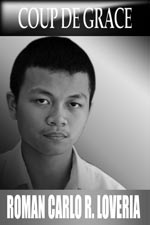 IN A LUNCHEON meeting last July 8 with Varsitarian editors, UST Rector Fr. Rolando de la Rosa, O.P. was asked why he temporarily closed down the research centers and ordered their review. “I looked into our researches; most of it is just geared toward publication, and not utilization. Imagine, we are spending so much and all we have [are] just published research papers,” he said.
IN A LUNCHEON meeting last July 8 with Varsitarian editors, UST Rector Fr. Rolando de la Rosa, O.P. was asked why he temporarily closed down the research centers and ordered their review. “I looked into our researches; most of it is just geared toward publication, and not utilization. Imagine, we are spending so much and all we have [are] just published research papers,” he said.
“I want the research to concentrate more on utilization and not on publication especially because we are a developing country.”
Utilization may apply to the natural and applied sciences. But the greater burden of the new initiative seems to fall on the humanities.
Literature almost always finds itself on the defensive, having to justify its significance in the face of technological advances. And yet just what kind of advancement is expected of literature, or the arts for that matter? For the Rector, social and creative investigations should improve Thomasian pedagogy and establish the University’s foothold in social and political criticism.
Right as this view is still, the need for a raison d’être exists. It does not suffice that artistry exists only as some auxiliary to education. If this were the case, the humanities could be wrongly reduced to vague machinations that haphazardly preach nothing more than touchy-feely airy-fairy universals that, when applied, tend to romanticize actual reality. When technology however, comes up with innovations, it is either the novelty or the obvious usefulness that often does away with the need for explanations. In the case of art, not even the fact that it elevates the reasoning and senses to higher spheres of existence completely redeems it from scrutiny.
“He [the poet] must be quite aware of the obvious fact that art never improves, but that the material of art is never quite the same,” was how T.S. Eliot perceived the epistemic ontology of art, albeit I cannot agree with him when he attributes so-called improvements or complications in art to plain economics and machinery. The very multitude of subjectivities participating in the artistic process is neglected. Perspectives are a part of that which keeps art from stagnating.
At the moment, everything about the artistic sphere may appear muddled, but what is this fragmentation if not a definition of this era? From these shards of knowledge and experience can be gleaned the present trend of dividing larger problems into smaller ones, then, in the end, coming up with a unified answer. But perhaps future generations will be better equipped to make assessments of our present circumstances.
Literature thrives on its historical value as a record like no other. At once both subjective and objective, words tell not only what one saw and felt, but also how and why there was such a scheme of things. Works that attain the title of greatness do so not really because of matters of form or even density of expression. Such criteria are but preliminaries to finding that which really breathes immortality into the “good read.”
Returning to literature’s historical significance, it becomes evident that literature introduces a unifying quality to human experience. As philosopher John Searle put it, “Consciousness is by its very essence qualitative, subjective, and unified.” We could know all there is to know about the universe “atom for atom,” but we would be missing out on a number of things like subjective experience. The analogy exists in the idea that literature enables a communication not only of thoughts and opinions, but also of facts, in a manner that many can juxtapose with how they experience the information for themselves.
Literature and art are there to humanize science. The idea is not just to mock or further mystify the scientific perspective, but to assess the discoveries and inroads of technology based on their relevance to humanity. The humanities are there to provide poetry to technology.
Of course there is that necessary erudition on the part of both writer and reader for this to come to fruition. But in essence, all that is needed is a genuine will for science and humanities to share their queries and solutions with one another. And perhaps this relationship of understanding would not be so ominous for spirituality either since, according to Wernher von Braun: “Nature does not know extinction; all it knows is transformation. Everything science has taught me, and continues to teach me, strengthens my belief in the continuity of our spiritual existence after death.”
















